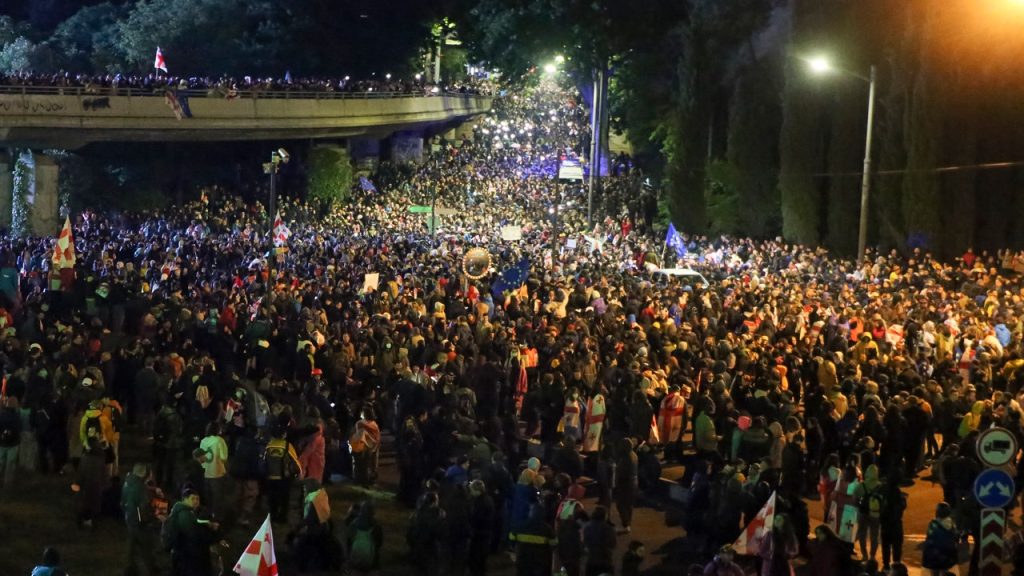Massive protests erupted in the capital of Georgia in response to the approval of a bill by lawmakers that critics view as a threat to free speech and the country’s aspirations to join the European Union. The bill, which requires media and nonprofit organizations to register as “pursuing the interests of a foreign power” if they receive more than 20% of their funding from abroad, has been likened to Russian legislation used to suppress independent voices critical of the government. European Council President Charles Michel and the White House have expressed concerns over the bill, warning that it could strain Georgia’s relationship with the EU and the U.S.
Opposition to the bill has been fierce, with protesters attempting to break through metal barriers outside the parliament building and thousands marching through the streets of the city. The unrest has been ongoing for weeks, with violent clashes between demonstrators and police resulting in the use of tear gas and water cannons. President Salome Zourabichvili has promised to veto the bill, but the governing Georgian Dream party has the majority needed to override her decision. The protests have highlighted the deep divide within Georgian politics, with opposition figures accusing the ruling party of betraying the country’s European future and using the protests for their own political purposes.
The passage of the controversial bill has raised concerns about the state of democracy in Georgia and its commitment to European values. The U.S. has warned of potential repercussions if the law is enacted, with Assistant Secretary of State for Europe and Eurasia Affairs James O’Brien stating that restrictions could be imposed if there is violence against peaceful protesters or if the law does not conform to EU norms. The bill has also sparked international condemnation, with critics arguing that it could move Georgia further away from its aspirations to join the EU and NATO.
The protests in Georgia reflect a broader struggle for democratic values and the rule of law in the region. The opposition has rallied against what they see as an attempt by the government to suppress dissent and undermine the country’s European future. The bill has reignited tensions between political factions and raised questions about the direction of Georgia’s political landscape. As the protests continue and the government faces mounting pressure, the country’s relationship with the EU and the U.S. hangs in the balance, with potential consequences for its democratic institutions and aspirations for integration into Euro-Atlantic structures.
The protests in Georgia have become a focal point for concerns about the erosion of democratic norms and the rule of law in the country. The passage of the bill has ignited a wave of public anger and resistance, with protesters demanding the protection of free speech and civil liberties. The situation has escalated into violent clashes between demonstrators and security forces, raising fears of further unrest and instability. The future of Georgia’s democratic development and its relations with the West are now in question, as the country grapples with internal divisions and external pressures to adhere to international standards. The outcome of this power struggle will have far-reaching implications for Georgia’s standing in the international community and its prospects for integration into the European Union and NATO.


